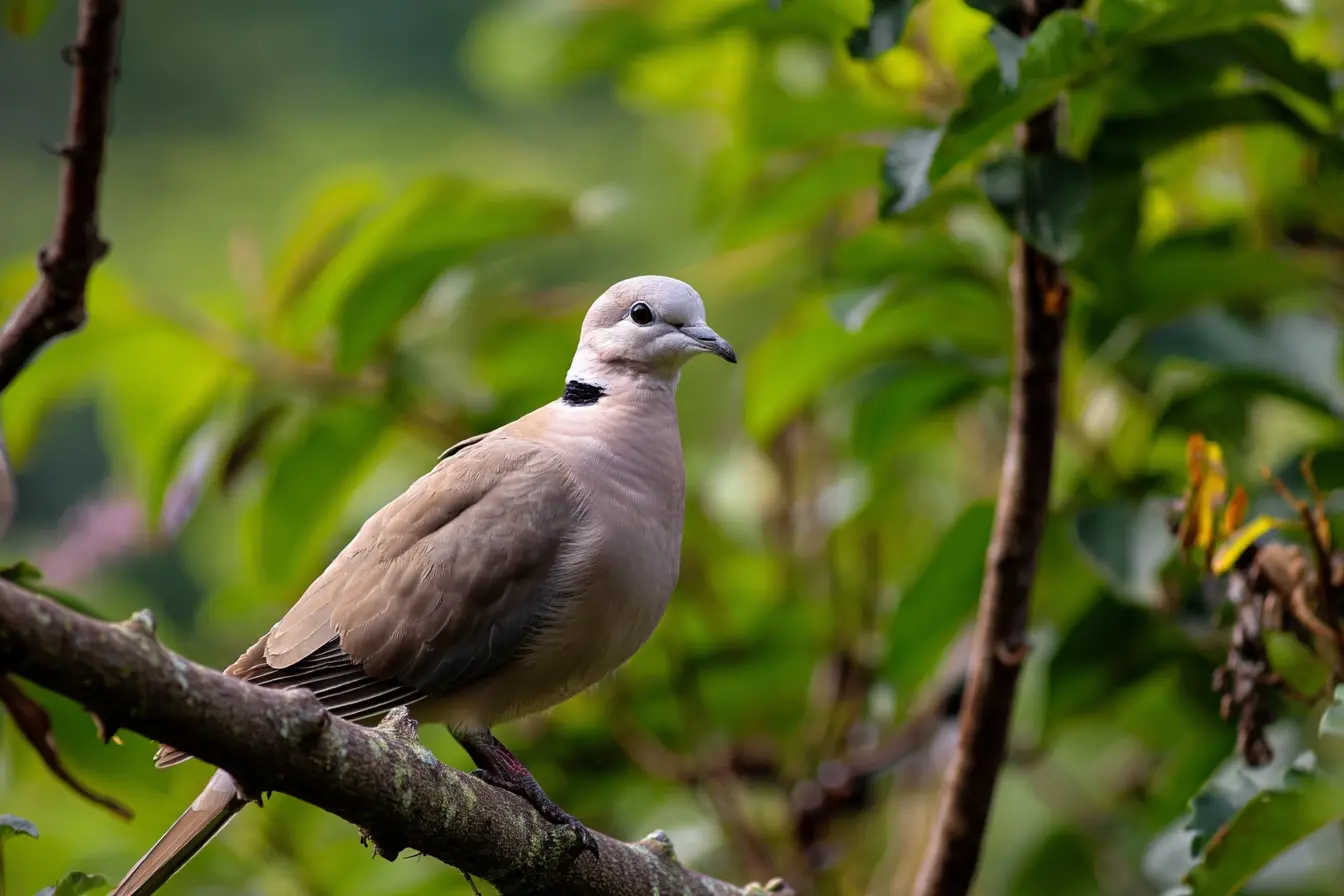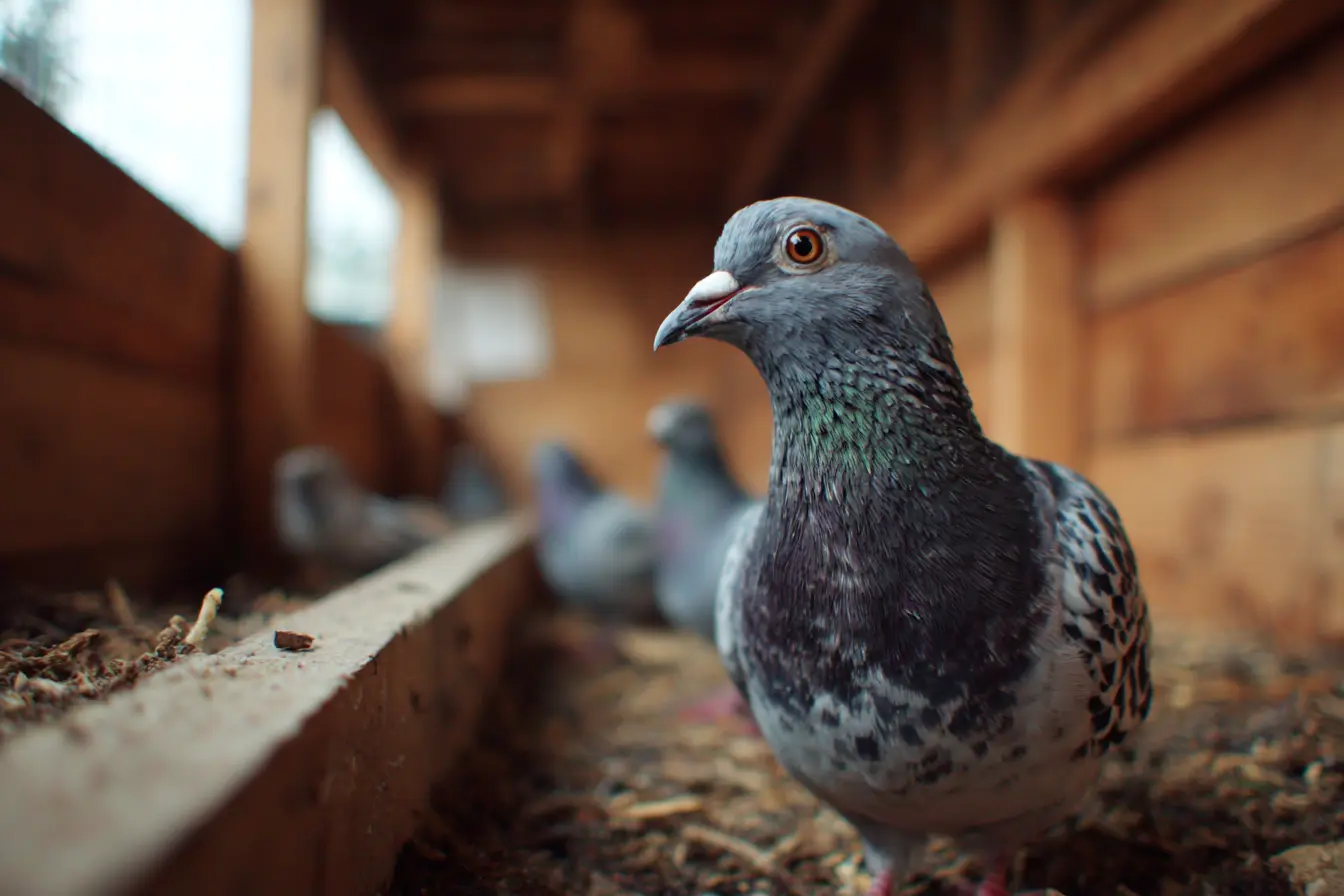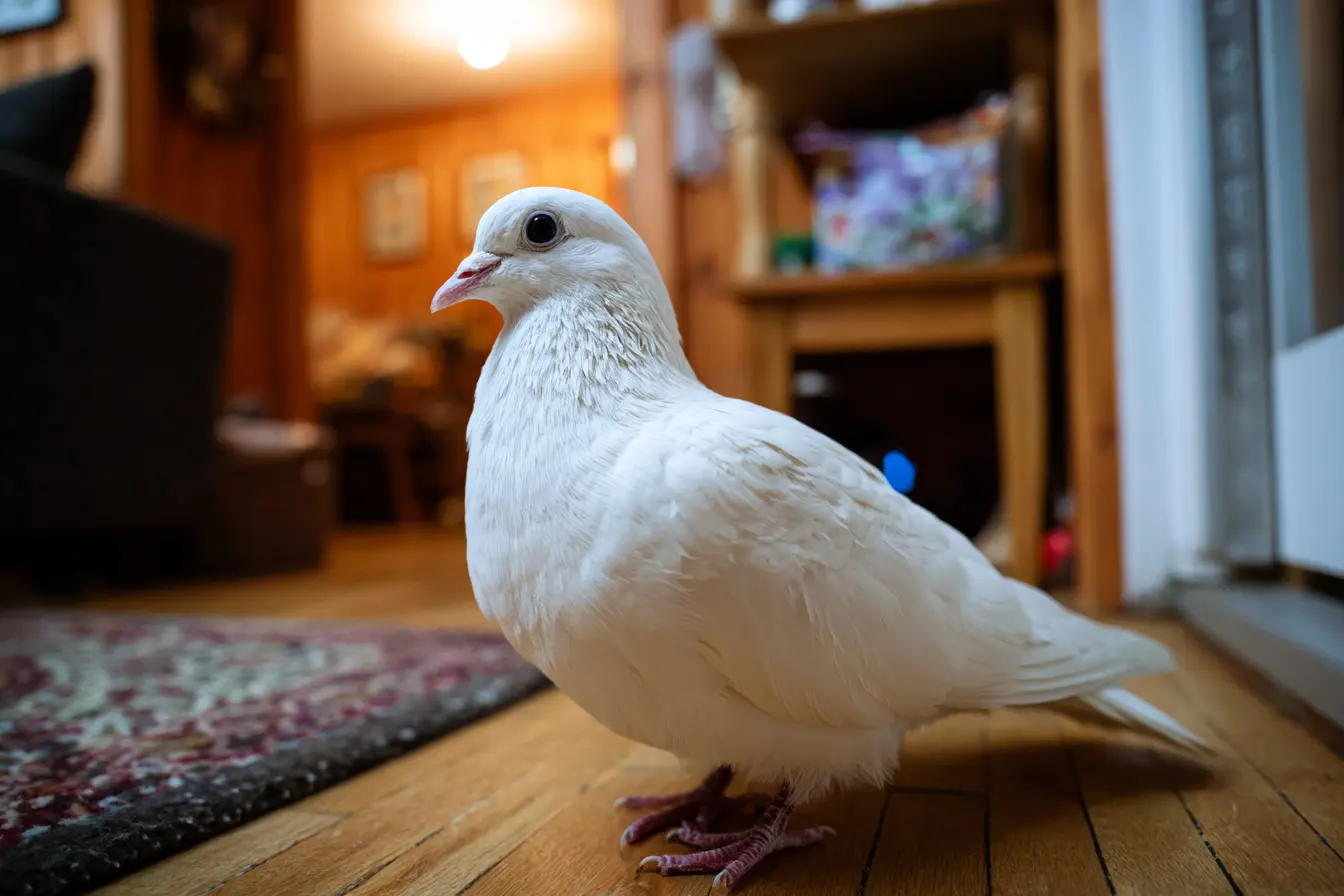
The Complete Guide to Keeping Ring-Neck Doves
Ring-neck doves (Streptopelia risoria) are gentle, elegant birds that have been domesticated for centuries. Known for their distinctive black neck band and soft cooing, they make calm, attractive companions for both experienced and first-time bird keepers. Keeping them successfully means understanding their nature, providing the right environment, and ensuring they have everything they need to live a healthy, happy life.
Appearance and Personality
Ring-neck doves are medium-sized birds, typically measuring around 30 cm (12 inches) from beak to tail. Their plumage can vary from creamy white to soft grey, with the signature dark “collar” at the back of the neck. They are generally calm, sociable, and easy to handle with gentle training. While not as interactive as parrots, they form bonds with their keepers and enjoy a peaceful, stable environment.
Housing Requirements
Aviary vs Cage
- Aviary: The ideal housing for ring-neck doves is a spacious outdoor aviary, allowing them to fly and exercise.
- Indoor Cage: If kept indoors, the cage should be as large as possible—minimum 75-90cm (30-36 inches) wide, with horizontal space for short flights. Bigger is always better.
Location
- Place the aviary or cage in a sheltered spot away from strong winds, draughts, and predators.
- Ensure they have access to natural light but avoid direct midday sun without shade.
Perches and Nesting
- Provide a variety of perches of different diameters to promote healthy feet.
- Include covered nest boxes or baskets if you intend to breed them.
Nutrition
Daily Diet
- Seed Mix: A balanced dove or pigeon seed mix containing millet, canary seed, safflower, and wheat.
- Grit: Both soluble grit (calcium-rich, such as oyster shell) and insoluble grit for digestion.
- Fresh Greens: Offer chopped spinach, kale, dandelion leaves, or lettuce in moderation.
- Occasional Treats: Small portions of fresh fruit like apple (no seeds) or berries.
Foods to Avoid
- Never feed chocolate, avocado, salty or processed foods.
- Avoid mouldy seeds, which can cause serious illness.
Health and Care
Common Health Issues
- Canker: A parasitic infection causing yellow lesions in the mouth.
- Respiratory Problems: Wheezing or nasal discharge may indicate illness.
- Parasites: Mites and lice can affect plumage and comfort.
Preventative Care
- Keep housing clean, with droppings removed daily and deep cleans weekly.
- Provide fresh water every day.
- Offer a shallow dish of water for bathing twice a week to maintain feather condition.
Vet Care
- Find an avian veterinarian who understands dove care.
- Schedule check-ups annually and seek prompt treatment if symptoms appear.
Breeding Ring-Neck Doves
Breeding Behaviour
- Ring-neck doves are prolific breeders and may lay eggs every few weeks if conditions are right.
- Both male and female take turns incubating the eggs.
Nesting
- Provide a secure nest basket lined with soft materials such as straw or hay.
- Typical clutch size is two eggs, which hatch after about 14 days.
Raising Chicks
- Parents will feed their young with “pigeon milk” (a nutrient-rich secretion) for the first week, then gradually introduce seeds.
Social Interaction
Bonding
- While they don’t crave constant interaction, ring-neck doves respond well to gentle, consistent handling.
- Hand-feeding treats can build trust over time.
Compatibility
- They are generally peaceful but can become territorial in breeding season.
- Best kept in pairs or small groups with enough space to avoid disputes.
Enrichment
- Provide branches, swings, and safe plants for mental stimulation.
- Play soft background music or nature sounds to mimic a calming environment.
- Scatter feed occasionally to encourage natural foraging behaviour.
Lifespan and Commitment
Ring-neck doves can live for 10–15 years with proper care. This makes them a long-term commitment, so be sure you can provide for them over their lifetime.
Conclusion
Keeping ring-neck doves is a rewarding experience for those who appreciate their beauty, calm temperament, and gentle presence. With spacious housing, a balanced diet, regular care, and a peaceful environment, these graceful birds will thrive and bring a sense of serenity to your home or garden for many years to come.
Vets near you
Speciality vets
- Aquatics vet specialists
- Birds vet specialists
- Camelids vet specialists
- Cats vet specialists
- Cattle vet specialists
- Deer vet specialists
- Dogs vet specialists
- Equines vet specialists
- Exotic vet specialists
- Goats vet specialists
- Pigs vet specialists
- Poultry vet specialists
- Sheep vet specialists
- Small Mammals vet specialists
- Wild vet specialists
Vet facilities
- Accessible by public transport
- Blood testing
- Car park nearby
- Client car park
- Dentistry
- Diagnostic imaging
- Disabled public access
- Flea and worm treatments
- Microchipping
- Mobile services
- Neutering
- Open at weekends
- Out-of-hours service
- Referral interests
- Referrals only
- Street parking outside
- Toilets available
- Vaccinations



